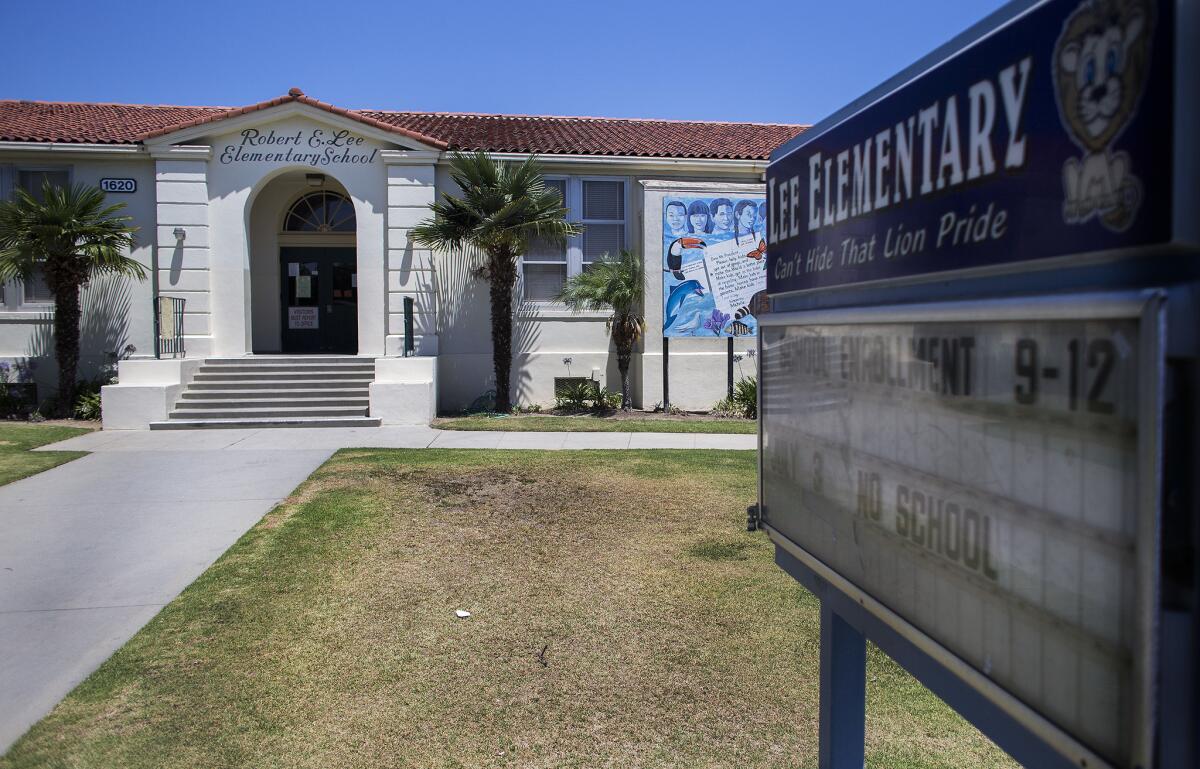California lawmakers vote to ban Confederate names from public buildings

For more than a century, Robert E. Lee Elementary School in Long Beach, bearing the name of the Confederate general, has avoided scrutiny over its name. But a bill passed by the California Legislature on Tuesday would require the school to change its name.
- Share via
Reporting from Sacramento — The California Legislature on Tuesday sent the governor a measure that would bar the naming of public buildings, including schools, after Confederate leaders from the Civil War.
Sen. Steve Glazer (D-Orinda) said the bill “shines the light” on the practice of naming buildings in a way “where we are celebrating traitorous leaders” who “attempted to break our nation in two to continue to enslave black people.”
His bill would affect two schools named after Gen. Robert E. Lee, one in Long Beach and the other in San Diego.
Senate passed the bill, SB 539, by a 31-2 vote, with two Republicans voting against the measure.
“If anything, this is revisionist history” said Republican Sen. Jim Nielsen of Gerber, one of the senators who voted against the legislation.
The Assembly approved the bill in late August. It now goes to Gov. Jerry Brown for consideration.
The bill specifically excludes political jurisdictions, including cities and counties, that were named after Confederate leaders.
In July, members of the California Legislative Black Caucus asked the mayor of Fort Bragg, in the northern part of the state, to seek a change in the city’s name to disassociate it from the Confederate general for whom it is named. City officials declined.
The legislation came in the wake of a deadly attack in South Carolina on June 17, when a gunman shot and killed nine black churchgoers in Charleston. Investigators describe the suspect as a white supremacist, and photos released later show the suspect proudly holding up the Confederate battle flag.
The incident prompted a national reexamination of the use of Confederate symbols, long objected to by many black Americans, especially on public institutions.
Los Angeles Times staff writer Phil Willon contributed to this report.
Twitter: @mcgreevy99
More to Read
Sign up for Essential California
The most important California stories and recommendations in your inbox every morning.
You may occasionally receive promotional content from the Los Angeles Times.














